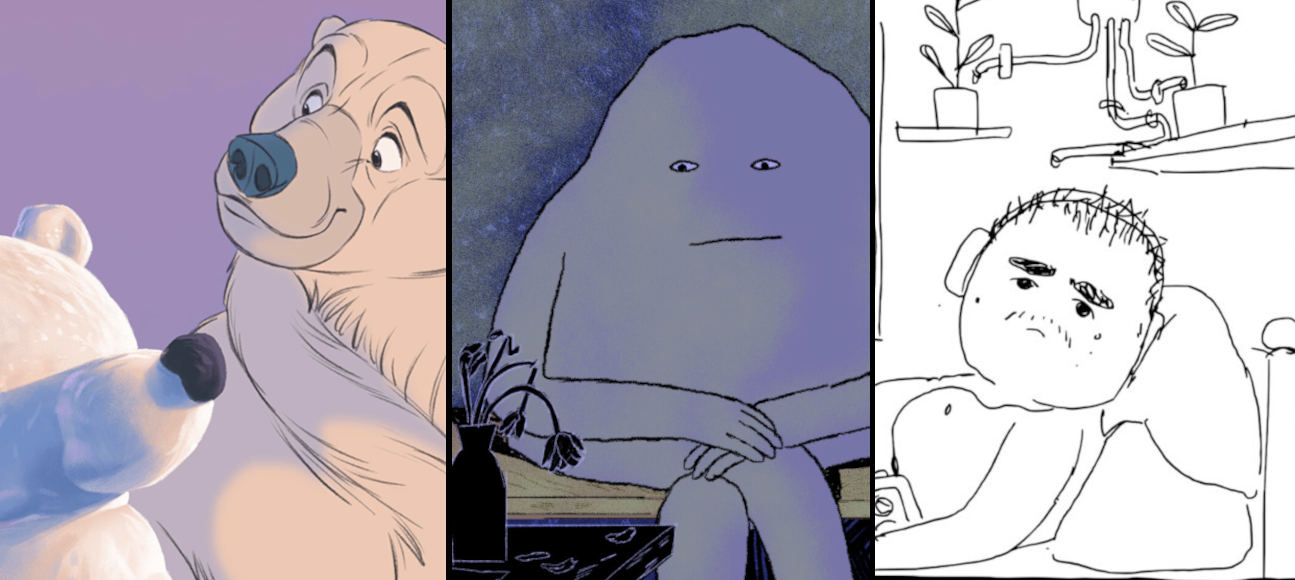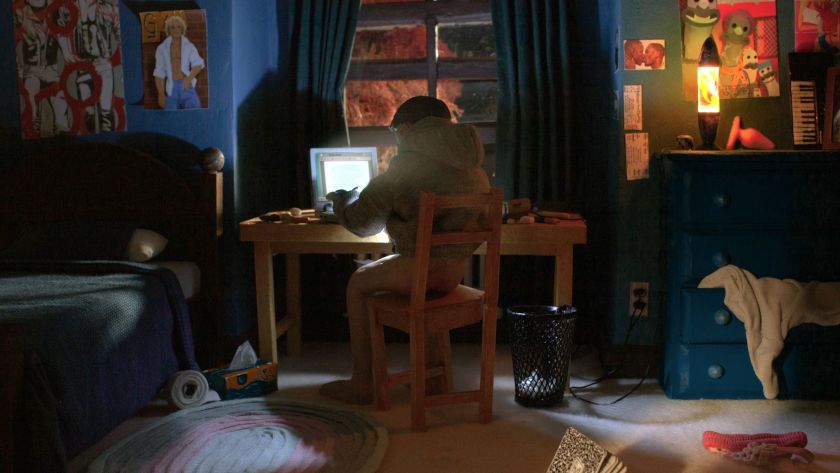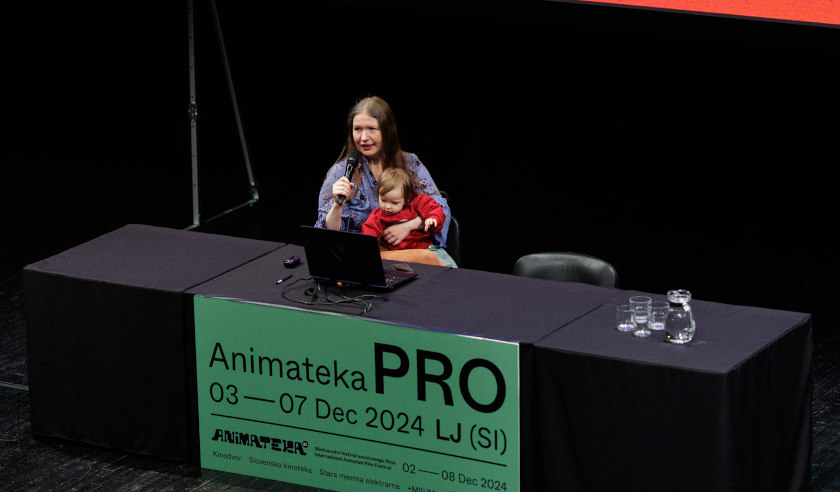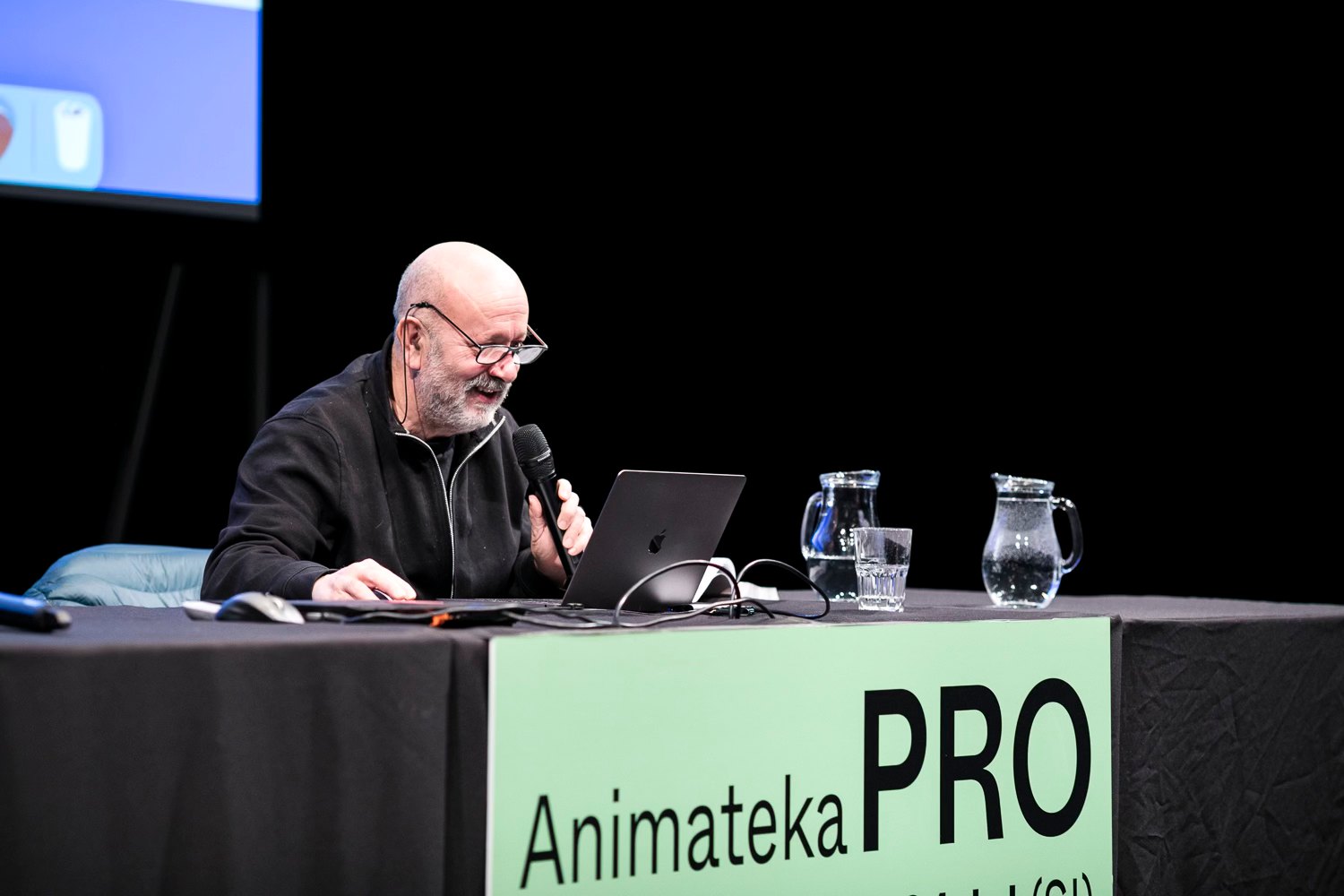Mickey’s Descent into Madness by Tom Bourgeois (GoCritic! Review)
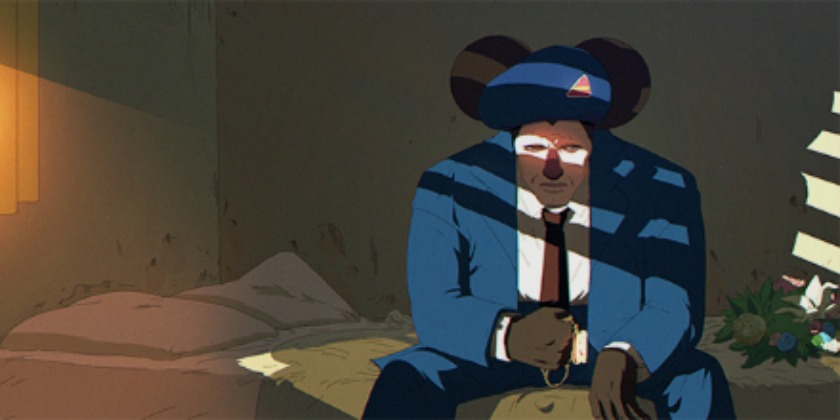
The third competition program within the 17th edition of Animest was incredibly diverse, with 11 films and a rich variety of styles and themes which made it feel somewhat overcrowded. One film stood out, however, in this full-to-bursting offering, for its uncanny visual and thematic discourse: ‘Mickey’s Descent into Madness’ by the French director Tom Bourgeois.
The title appears to imply a hard-hitting film, which opens with a biblical quote and seems to set a dark and serious tone, but this is immediately contradicted by the first frame in which the protagonists are revealed to us. The film seems to emulate a noir style through built-up intensity in its dialogues and voice-over, but it quickly reveals its extremely campy ambition.
The film follows three Vietnam war veterans in the post-war period, who happens to be Mickey Mouse, Donald Duck, and Goofy, a character choice that combines with the aforementioned atmosphere to create a delectable piece of work. Here, the meme-like bridging between characters borrowed from Disney and the Vietnam War serves as a prerequisite for conveying a post-ironic positioning vis-à-vis the war. The author is clearly looking to make a political statement about the corrupt and imperialistic US system, but he does so via an identity switch.
Through its humorous effect, the film succeeds in informing the viewer about the horrors of war, but it fails to leave them gripped in an active state of contemplation. The final scene, for example, is a flashback, showing the three now-humanized protagonists embroiled in a moral argument over the stakes of the war, in the moments leading up to the conflict, which is itself the clearest political statement of the whole film. However, Bourgeois’s juggling between seriousness and playfulness is refined, since the final and penultimate scenes are juxtaposed by credits and merch-ads for the film, and viewers are invited to buy a funny T-shirt instead of thinking about the war.
Interestingly, the mechanism which lends the film’s discourse consistency is post-irony: creating a critical distance by means of an irony that aims to speak to the truth in a round-about way, without directly addressing it. This means that the film can communicate its message to new generations by way of an uncanny rendering that respects their sensibilities. In the case of ‘Mickey’s Descent into Madness’, this approach allows people with no experience of war to take up a position and form an opinion.
Animest International Animation Festival took place from 7 to 16 October 2022 (Bucharest, Romania). GoCritic! Training Programme 2022-24 is conducted under the Animation Festival Network Organization.
Contributed by: Emilian Lungu




